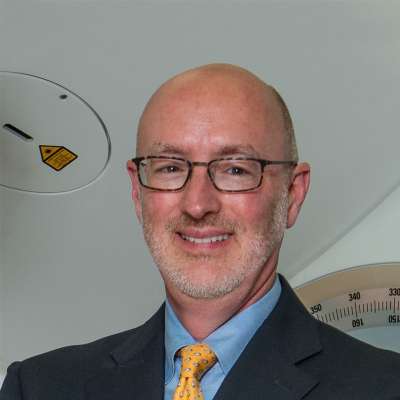Over the last 30 years, I have been witness to a remarkable change in how we diagnose and treat prostate cancer. Prior to the mid-1980s, prostate cancer was detected most often when symptoms of advanced prostate cancer were present, such as bone pain from metastatic disease. Very few patients were diagnosed at a curable stage.
The PSA (prostate-specific antigen) blood test came into wide use around 1986 when the FDA approved it for monitoring known prostate cancer. In the early 1990s, physicians started ordering it to detect early, asymptomatic prostate cancer. A spike in prostate cancer diagnosis happened. This wave of patients was a boon to treating physicians, primarily urologists who operate on prostate cancer, but also for radiation oncologists who treat cancer with various types of radiation. More early diagnoses also led to more clinical trials about how best to treat prostate cancer.
We learned a lot. Techniques for removing the prostate got better with the advent of robotic-assisted prostatectomy, as did precision and dose of radiation delivery with intensity modulated radiation treatment. The 15-year relative survival rate for prostate cancer is now an astounding 95%.
But we also learned that not every man with prostate cancer needs treatment.
How can we say this? How can we diagnose someone with cancer and then say, “Oh, by the way, you don't need to do anything about it”? Add to this confusion the 2012 US Preventive Services Task Force recommendation to do away with screening altogether because of the risk of over-diagnosis and harm. In my opinion, that is a dangerous step backward for many of us guys who will get prostate cancer.
Granted, we are too aggressive about treating some prostate cancers. It is easy to vilify doctors who are incentivized to treat rather than watch and wait. But I think a big part of the problem in the US is that patients don't want to be told they have cancer and nothing needs to be done about it, especially when all this wonderful technology exists and insurance will pay for it.
What’s the solution?
We have very good tools now for determining aggressiveness of an individual patient's prostate cancer. That, along with evaluation of a patient's age and overall health status, helps us predict quite well whether or not a particular patient's prostate cancer will ever be a problem for them without treatment. Over treatment can be just as much of an error as under treatment or the wrong treatment. Know all your options for treatment if you need it; no single treatment is right for everyone. Get a second opinion if you haven’t gotten a good explanation about your need for treatment and what your full options are. And, yes, don’t even get screened for prostate cancer if your age and health status are such that you wouldn’t benefit from treatment anyway.
In the near future, there are certain pathologies that we call cancer now that we will no longer label as malignant, as they simply don't act like cancer. (It is a lot easier to say we don't need to treat a condition if we don't call it cancer.) In addition, genetic testing may add to our ability to individualize decision-making based on aggressiveness and risk of spread and progression of disease.
The American Cancer Society continues to support screening for prostate cancer, because they know that screening saves lives. If you are 50 or older – 45 for African American men – and are likely to live for ten years or more, get a PSA blood test. Do it regularly. Go to www.cancer.org for more information. Man up; take charge of your health.











